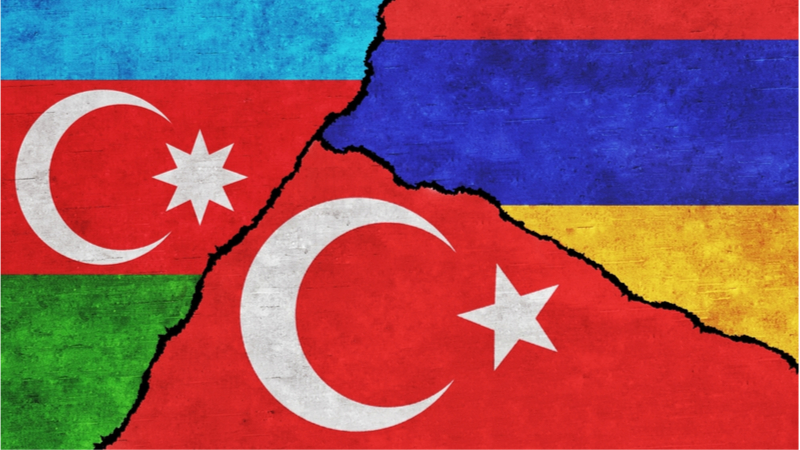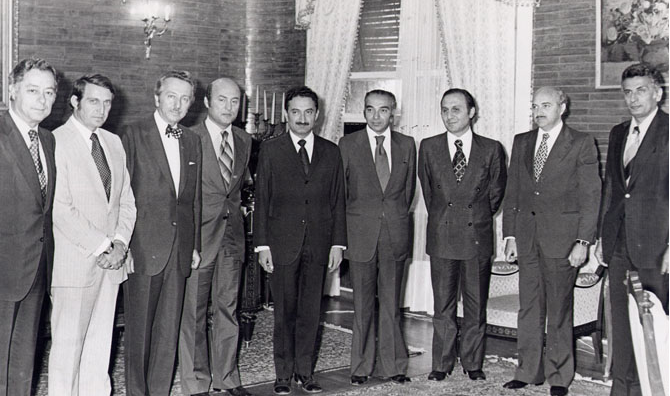Normalization between Armenia and Turkey: Can it succeed?
By Natalia Konarzewska
January 14, 2022
In mid-December 2021, Turkey and Armenia mutually appointed envoys for upcoming normalization talks. Turkey has wider, strategic reasons for seeking reconciliation with Armenia, and the shift in the balance of power in South Caucasus since the second Karabakh war in 2020 has removed an obstacle for the pursuit of these ambitions. At first glance, the new rapprochement process promises to be more successful than the last time, in 2009, but ultimately the success of the rapprochement will depend on the trajectory of the relations between Armenia and Azerbaijan. Even though Yerevan realizes that it stands to benefit from a normalization of relations with Turkey, there is nonetheless a risk that its conflict with Baku, and the fear that the Armenian public might not stomach what would appear to be concessions to Azerbaijan, will prevent the Armenian government from pursuing the normalization.

Have Turkey's Business Barons Discovered Democracy?
By Barış Soydan
December 6, 2021
For the second time since its founding in 1971, Turkey’s leading business organization has confronted a Turkish government and called on it to reverse its policies. On the face of it, TÜSİAD is carrying the banner of democracy. However, its pleas for democracy ring hollow. What TÜSİAD deplores is not so much authoritarianism as economic instability. TÜSİAD would hardly endorse an expansion of democracy and strengthening of democratic rights that imperil the primacy of neoliberal capitalism.

Turkey does not want to be left out of the Trans-Atlantic community
By Ozan Serdaroğlu
December 23rd, 2015, The Turkey Analyst
The Turkish Justice and Development Party (AKP) government has always cherished strong economic bonds with the West, recognizing that both the EU and the U.S. are vital for Turkey’s foreign trade. Developments during the second half of 2015 show that further deepening of economic relations with Western countries has become a top priority. This new posture may also bring about considerable changes in domestic economic governance, ushering in a convergence of goals between the government and the economic elites in Turkey.
Öz: big capital is behind the AKP regime
Güray Öz in Cumhuriyet writes that history teaches that the establishment of a one party rule and ideological homogenization requires the securing of the full support of big capital. At the recent meeting of the Association of Turkish Businessmen and Industrialists (TÜSİAD) the representatives of big capital listened to the speech of the prime minister standing. That shows that we should not expect that big business is going to oppose the ideological uniformity that the one party regime is introducing. Make no mistake; they will acquiesce to ideological homogenization in the name of the “stability” that they like so much. The problems in society, in the east, in the west and with the outside world are not going to end, but never mind that; homogenization is good for the protection of profits in troubled tomes; one nation, one party – that’s a good deal for profit…
Can TÜSİAD Help Save Turkish Democracy?
By Halil Karaveli (vol. 8, no. 3 of the Turkey Analyst)
The historical record of TÜSİAD, The Association of Turkish Industrialists and Businessmen, as an agent for democratization is anything but encouraging. Today however, the interests of its members compel TÜSİAD to be a force for democracy and secularism. But mustering the force to defend these principles requires that the members of TÜSİAD break with a long tradition of bourgeois quietude and subservience to the state. But will they instead hunker down and seek salvation in adjusting to a capitalist model that does not depend on closer relations with the West?





